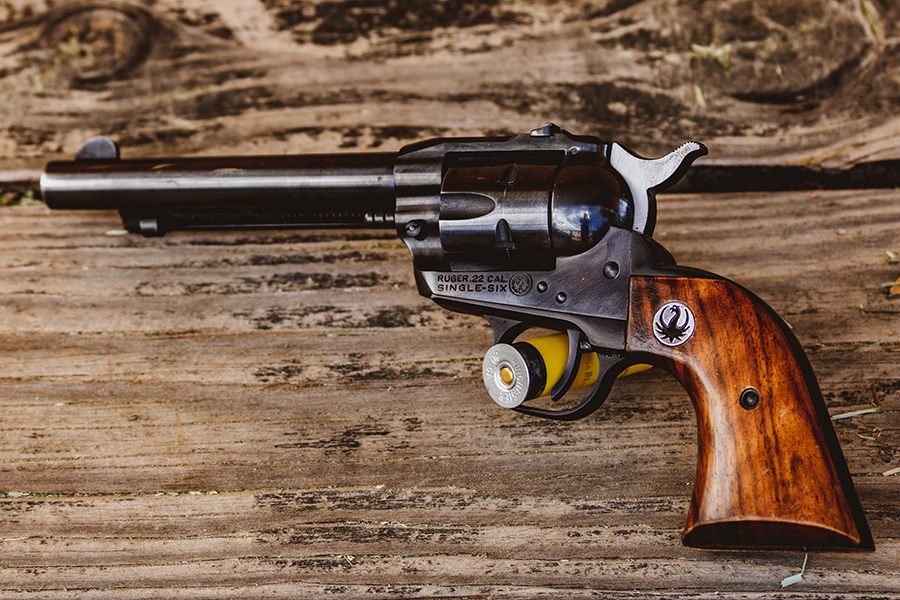
Learn law before adding guns on board
For recreational boaters, piracy often seems as remote as Somalia – where four cruisers were killed following the hijacking of the Quest, a 58-foot sailing vessel. Certainly, the crew of four aboard the Joe Cool never suspected that their minutes were numbered and tragedy – as opposed to Bimini – would be their destination as the 47-foot sport fisher slipped out of its Miami slip one sunny September afternoon.
The hijackers, with a 9mm in their duffle bag and a ruse about their girlfriends waiting for them in Bimini with their passports, convinced the crew to accept the $4,000 charter and head out. Little did the crew know that one of their passengers was a fugitive fleeing for Cuba to escape a child molestation investigation and an Arkansas felony charge relating to a $92,000 Wal-Mart robbery.
Miami mariners have an indelible memory of this tragedy and others. While federal laws make it a federal crime to bring a dangerous weapon aboard a vessel without previously obtaining the permission of the owner or master of the vessel, only with extreme vigilance, including the physical examination of bags and the searching of pas
Now, with summer here and gun control laws making national headlines, vessel security is on the mind of boat owners and crews. But the laws surrounding the protection of your vessel are confusing and change as your vessel passes from coastal waters past the demarcation line into international waters and then into a foreign port.
Federal law allows the transport of weapons in vessels if they are unloaded, rendered temporarily inoperable or are packed, cased or stored in a manner that will prevent their ready use. Under these conditions, no permit is required. As you transgress Texas, Louisiana, Alabama, Florida, Georgia, South Carolina, North Carolina, and Virginia waters, while the laws are “generally similar” (with some variations and exceptions while fishing or hunting), in most states gun laws that apply to boats often follow similar rules which apply to vehicles. These states’ laws also prohibit a convicted felon from possessing a firearm under any circumstances.
But, if you are taking a firearm aboard as a concealed weapon, then you must have a concealed weapons permit. According to Carli Segelson, Florida Fish and Wildlife Conservation Commission public information coordinator, “While Florida permits the use or possession of a firearm while engaged in fishing, camping, or hunting or going to or from lawful hunting, fishing, camping expeditions, if you are simply pleasure boating, you may carry a concealed weapon if you have the appropriate permit.
“If you do not have a concealed weapons permit, a firearm may be on your vessel as long as it is stored in the same manner as it would be if in a vehicle (private conveyance), provided that you are not in a federal park or refuge,” she added. “It is always wise to advise any law enforcement officer that you are carrying a weapon or have a weapon on your vessel.”
U.S. Residents traveling with firearms are reminded to register it with U.S. Customs and Border Protection on a form 4457 prior to taking it out of the U.S. You will need to present the firearm in-person to a CBP officer in order to register it. When you re-enter the U.S., a signed CF 4457 is proof that you did not acquire the firearm abroad. If you have the original receipt for a firearm purchased in the U.S., this can be used in lieu of the form to demonstrate that it is American goods returned.
Should your cruising include the Bahamas, that country’s law permits firearms aboard your vessel as part of your ship’s equipment, but they must be declared (including the ammunition count) and stay aboard the vessel in a secure compartment at all times. In the event your boat is boarded by customs or the Royal Bahamas Defense Force, the information on your cruising permit will be checked carefully against your actual supply and ammunition must match the number on the cruising permit.
The U.S. Department of Transportation Maritime Administration and the U.S. Coast Guard has focused on improving the self-awareness and self-defense capabilities of the commercial shipping industry, and recreational boaters should consider doing so as well. The maritime industry and the International Maritime Organization have established self-defense standards for commercial vessels transiting piracy risky regions, and recreational vessel owners should also develop a self-defense plan. If you intend to carry a firearm aboard your vessel, verify the latest gun laws for your specific state and any other areas you travel. All states have this information readily available to boaters on both permitting and boating requirement websites.
If a weapon is carried, boaters should implement plans for proper permitting and securing of weapons aboard and proper training in the use of your weapons for all aboard. If you operate a charter, you should have written permission to inspect all bags and include a boarding procedure which includes checking all passenger’s thoroughly for weapons.
Capt. Robert L. Gardana is a licensed U.S.C.G. master and practicing attorney for over 30 years and may be reached at Gardanalaw@gmail.com (website: www.BoatLawyer.com).
This article was first published in the June 2013 edition of – All At Sea – Southeast.
